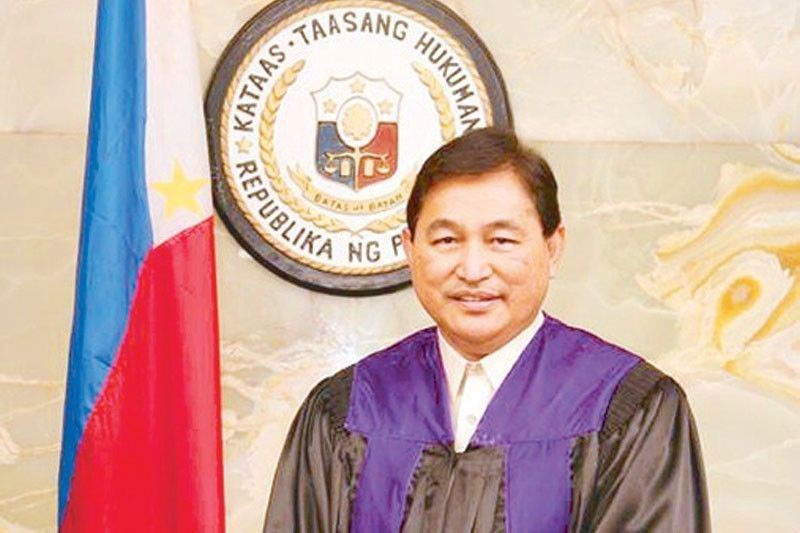‘No risk of political reform in economic Cha-cha’

MANILA, Philippines — Apprehensions over possible insertion of political reforms like lifting of term limits for elected officials are misplaced since the ongoing economic Charter change in Congress covers only economic provisions, according to former Supreme Court justice Adolfo Azcuna.
“Political matters are not covered because they are not in the subject matter stated in the title,” Azcuna told lawmakers during the hearing of the House committee of the whole, noting that the proposed amendments only covered Articles 12 (public utilities), 14 (education) and 16 (advertising) of the Charter.
“So that is a safeguard. So as long as it is only RBH-6 of the Senate and RBH-7 of the House are the ones proposed and approved, then it will only be on economic provisions and even then, only Articles 12, 14 and 16,” explained Azcuna, who is also among the framers of the 1987 Constitution.
The former magistrate said inserting political provisions in the economic Charter change cannot be done, since only pending proposals limit the scope of Charter amendments.
“My answer is that it is limited by the very form of the proposed resolution, which is in the form of a joint resolution of both Houses, and it is subjected to the cardinal rule of one subject matter that must be expressed in the title,” he clarified.
Former national security adviser Clarita Carlos has expressed support for the proposed economic amendments to the Constitution, noting that a Constitution should be “a living document that should reflect the political and economic conditions of our times.”
Carlos noted if the basic law fails to adapt in the constantly changing environment of a borderless world, it should be changed.
“Let us build bridges, not walls, to the rest of the world,” Carlos said during the fourth hearing of the House of Representatives on Resolution of Both Houses No. 7.
She also urged those opposing the opening up of education to foreign investors to think about its potential outcome, which is “effective learning” and not ownership issues.
Speaker Martin Romualdez, along with officials and members of the House super majority coalition, has vowed to “embrace and adopt in toto” whatever the Senate will produce, if only to show their sincerity and for decades-old economic restrictions to be lifted.
Fourth mode
A Senate resolution has been filed seeking to amend Senate rules to allow the amendment of the 1987 Constitution through the “fourth mode” – a formula devised by the late Joaquin Bernas, one of the framers of the Charter.
Sen. Francis Tolentino filed Senate Resolution 941, adopting rules to amend and/or revise the 1987 Constitution. Tolentino’s resolution proposes adopting what Bernas called a “fourth mode,” a Charter change through Congress doing it as two houses in separate sessions, similar to the usual legislative process.
“Bernas explained…the two houses of Congress are not required, as they were under the 1935 Constitution, to be in joint session. Hence, it is quite possible for the two houses to formulate amendments the way they formulate laws – as they are where they are,” the resolution stated. “Once one house is through with a draft, it is passed on to the other house for action.”
“If there is a prohibition, it can come either from the letter of the Constitution (and there is none) or from the fundamental structure of our constitutional government. Thus, for instance, the implicit prohibition of joint voting comes from the bicameral structure of Congress,” SR 941 added.
Under the 1987 Constitution, amendments to the Charter can be introduced through the constitutional convention, constitution assembly and people’s initiative.
RBH-6 hearings
Despite seeing the rejection of the RBH-6 by a majority of senators, Sen. Sonny Angara is hopeful fellow senators will keep an open mind to listen and consider the opinions of experts on the proposal to amend specific economic provisions of the 1987 Constitution.
Angara, who is leading the Senate sub-committee on constitutional amendments, said the fifth public hearing will be conducted either by next week or the following week.
“As for me, I’’d like to think that the senators have an open mind, so if they hear something good here, they might change their minds. But of course, we respect each senator’s point of view. Each has its own point of view,” Angara told reporters after yesterday’s hearing.
Seven senators, including four other allies of President Marcos, would vote against the proposed measure to amend certain economic provisions of the Constitution.
Angara said the sub-committee needs to follow the process and that yesterday’s hearing was an extension of the discussion on expanding the education sector.
On the concern of Sen. Francis Escudero that the Senate has to craft rules and regulations before pushing through with another hearing on Charter change, Angara said the issue was settled during all senators’ caucus last week. – With Sheila Crisostomo, Neil Jayson Servallos, Cecille Suerte Felipe
- Latest
- Trending































